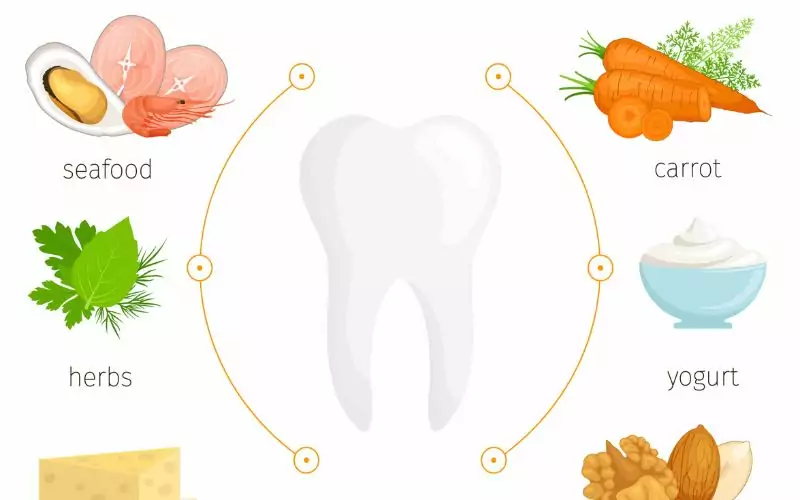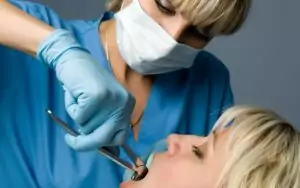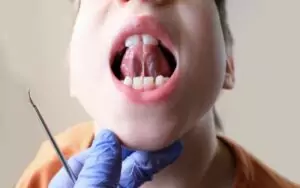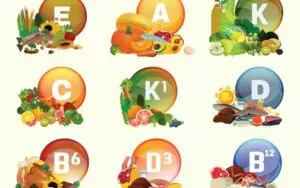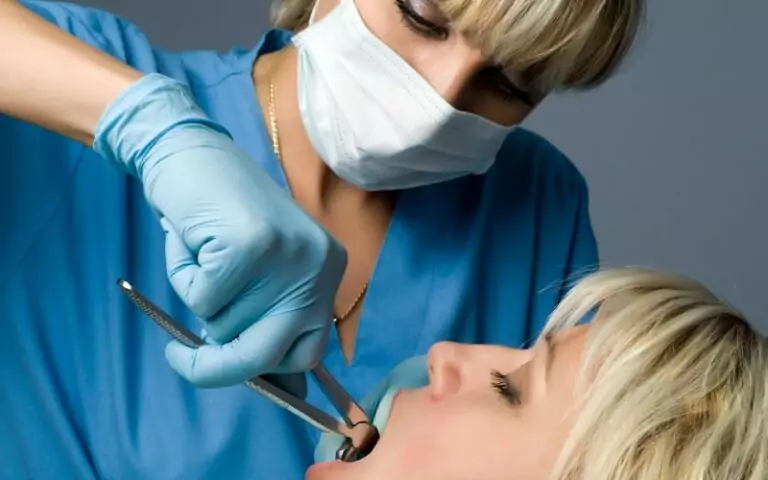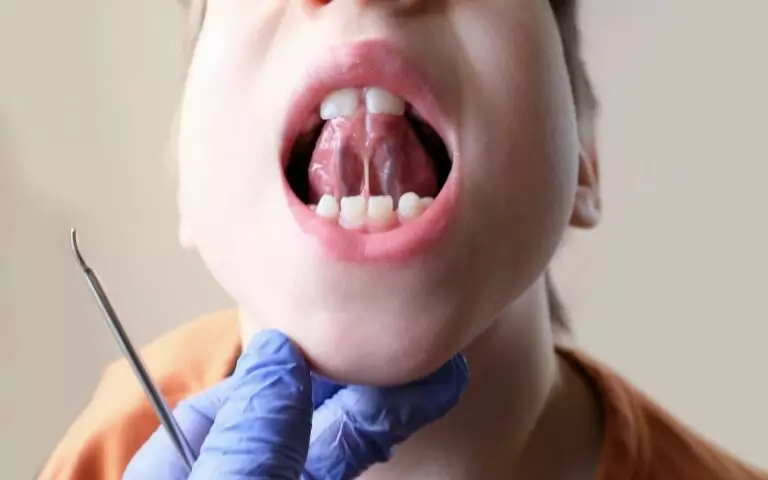Your mouth is one of the most important – and often overlooked – parts of your body and, just like every other part, requires specific nutrients and vitamins. To help you with your healthy smile, here is a list of 6 vitamins and minerals that are important for your oral health. Next week we will cover 6 more!
Table of Contents
ToggleVitamin A
Though it’s often just associated with carrots and good eyesight, vitamin A is essential for keeping your mouth’s saliva supply flowing. It helps to maintain healthy mucous membranes which coat your gums and cheeks, making them less susceptible to disease.
It also promotes saliva production, which is crucial for cleaning away destructive bacteria and food particles from between teeth and gums.
Aside from carrots, vitamin A is abundant in other orange fruits and vegetables such as peppers and sweet potatoes, as well as being present in dark leafy greens like kale, spinach, and collard greens. You can also find it in proteins like egg yolks and fish.
Vitamin B
B vitamins, specifically niacin and riboflavin, ward off mouth sores and oral inflammation. If you find yourself getting canker sores or inflammation in the gums or tongue, try incorporating more of these vitamins into your diet in addition to seeing your dentist. You can find niacin and riboflavin in poultry, fish, red meats, dairy products, spinach, almonds, and legumes.
Vitamin C
Vitamin C is essential in keeping the connective tissues of your gums strong. Without enough of it, the tissues holding teeth securely in place weaken, teeth can become loose, gums can bleed, and gum disease could become a danger.
Did you know that scurvy (yes, that thing pirates get!) was caused by a lack of vitamin C? It resulted in many sailors needlessly losing teeth before it was discovered that having a stockpile of limes or lemons on hand could easily fix the problem. Extra fun fact: that’s why the English came to have the somewhat cheeky nickname of ‘Limeys’.
So be sure to eat foods such as sweet potatoes, peppers, broccoli, berries, oranges, kale, and berries which are high in vitamin C and will keep those gum tissues healthy.
Calcium
Calcium is one mineral that is already well-known for keeping teeth healthy – and with good reason! Your teeth and supporting jaw bones are largely made up of calcium. It’s also needed for normal development and to keep them strong.
When not enough of the mineral is consumed, your body automatically takes the calcium it needs from your bones, which can compromise their strength and integrity. To avoid this and to make sure that your mouth’s supporting bones are as sturdy as possible, include in your diet foods with adequate calcium content such as leafy green vegetables, broccoli, sardines, almonds, legumes, oysters, and of course dairy products (as long as they don’t have too much sugar). And if in doubt, consider buying some calcium supplements or seeing a doctor.
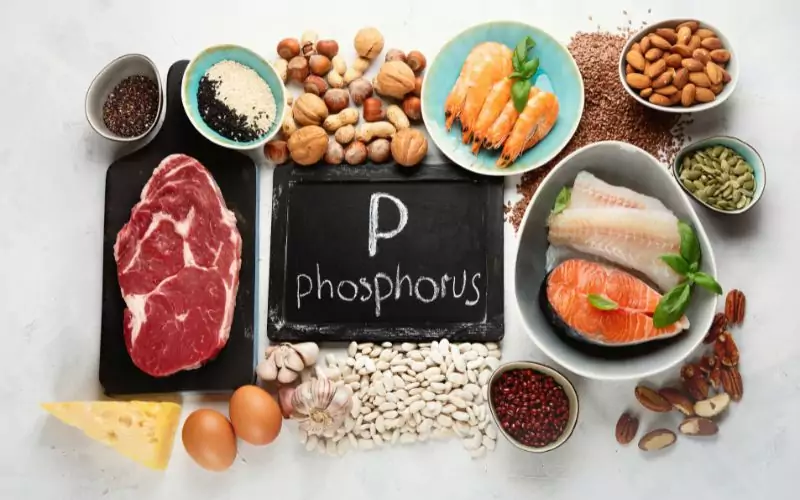
Phosphorus
Studies have shown that in order for calcium to fully absorb into the body and promote notable bone health, it needs to be paired with phosphorus. Most dairy products contain both phosphorus and calcium together, however many calcium supplements don’t have phosphorus in them.
This means that in order to reap the benefits of taking calcium supplements, phosphorus is going to have to be consumed through diet. Foods high in phosphorus include milk, cheese, yogurt, red meat, beans, lentils, nuts, and whole grains.
Vitamin D
Vitamin D is very important for your oral health as it is what allows us to absorb calcium. Without it, your entire mouth would suffer from calcium deficiency, leading to underdeveloped teeth, gum disease, and tooth decay.
You can acquire all the vitamin D that you body needs just by sitting in direct sunlight for 15 minutes each day. You can also eat foods such as milk, eggs, fish, cod liver oil, and even some breakfast cereals that feature added vitamin D.
We hope this list will help you make better food choices for your oral health. Stay tuned to next week’s part II of this blog! Read >> Part 2
No matter your age, dental condition, and if you have a million questions, Dr. Sims can assist you or your young children in a professional manner and loves answering any of your questions or concerns. Dr. Sims grew up in Grimsby playing basketball, so he’s always up for talking about the Raptors! He’s also a football fan - go Buffalo Bills! In his free time, if he’s not watching a basketball game or football game, you’ll likely find him working out, cooking (got any new recipe ideas?), and of course, spending time with his amazing family.
- Tongue Tie Surgery: Medical or Dental? Your Complete Guide - February 28, 2024
- What to Eat After Tooth Extraction - January 16, 2024
- What Medical Professionals Treat Tongue Tie? - January 5, 2024

